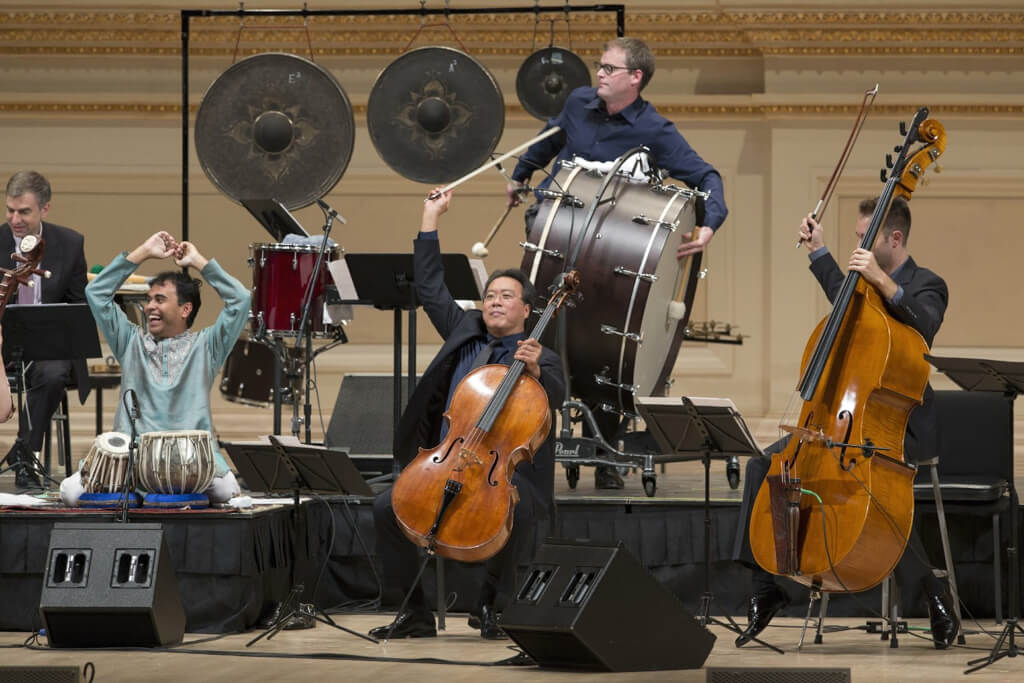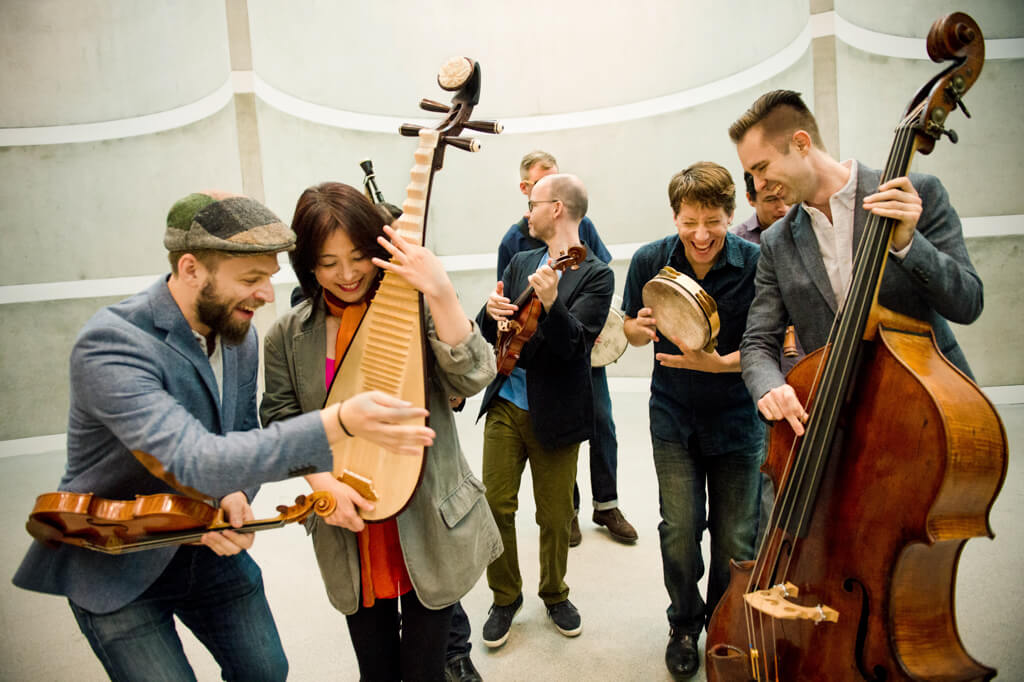
Who doesn’t love the Silk Road Ensemble? Founded in 2000 by cellist Yo-Yo Ma, the group took the idea of the ancient trade route, spanning the distance from Italy to Java and used from roughly 100 BCE to the mid-fifteenth century, as its inspiration for the ideas and cultural exchanges in the globalized world at the end of the twentieth century. Ma found and nurtured the best players and composers he could find, regardless of where they came from or what instrument they played — whether they were a Canadian violist or a balafon player from Mali, anyone who could play well and had a unique musical voice was welcome to join.
Back then, it seemed like a vague, feel-good take on multiculturalism. Seventeen years later, now that America has a list of countries whose citizens are banned from entering the country and cultural exchange has become cultural appropriation, a group devoted to uniting Asian, European, Middle-Eastern, and American musicians has become far more of an overt political statement than Ma could have hoped for in 2000. I’m sure the group is aware of this, too — their concert last night at the Aga Khan Museum was part of the Museum’s multimedia exhibit Syrian Symphony: New Compositions in Sight and Sound, which features the work of exiled Syrian artists as well as recordings by the ensemble.
Still, it’s not as if Silk Road ever needed to be overtly political to win over crowds, and Thursday’s concert showed why the group has lasted nearly two decades. Sandeep Das and Kayhan Kalhor showed up with an electrifying 45-minute improvisation on tabla and kamancheh, a four-stringed Persian instrument that’s something of a hybrid between a violin and a lute, in that it can be plucked or bowed. This piece was meant to serve as a dialogue between South Asian and Persian musical traditions, and Kalhor and Das’s playing — filled with blistering rhythmic passages, call-and-answer, and improvised variations on a theme — kept the sold-out crowd’s full attention and had them bursting into spontaneous, heartfelt applause throughout. Listening and watching the two groups play together was a joyful experience.

The Colin Jacobsen composition Beloved, do not let me be discouraged was a Turkish-inspired piece written for the whole ensemble: string quartet plus double bass and percussion, with Kalhor returning on kamancheh. A modal tune, rhythmic ostinato, and exotic percussion instruments sounded foreign, but was it Turkish music? It sounded as if the composer did what was asked of him but left something missing.
The emotional tour de force on the programme was Kalhor’s own composition Silent City, which he wrote to commemorate a brutal chemical attack on Hallabjah in Iraqi Kurdistan. Not only did Kalhor succeed in bringing the kamancheh together with Western stringed instruments, the piece itself ran the gamut of emotions — from bleak, to plaintive lament, to joyful dance. Kalhor wrote a powerful and emotional piece about an experience that’s all too common throughout the world today — the experience of seeing one’s home or home city under attack or even destroyed. And regardless of musical tradition or cultural background, everyone who came out to hear Silk Road could instantly identify moments of joy, sadness, or delight in the music and shared it together as an audience. Maybe music can bring people together after all.



